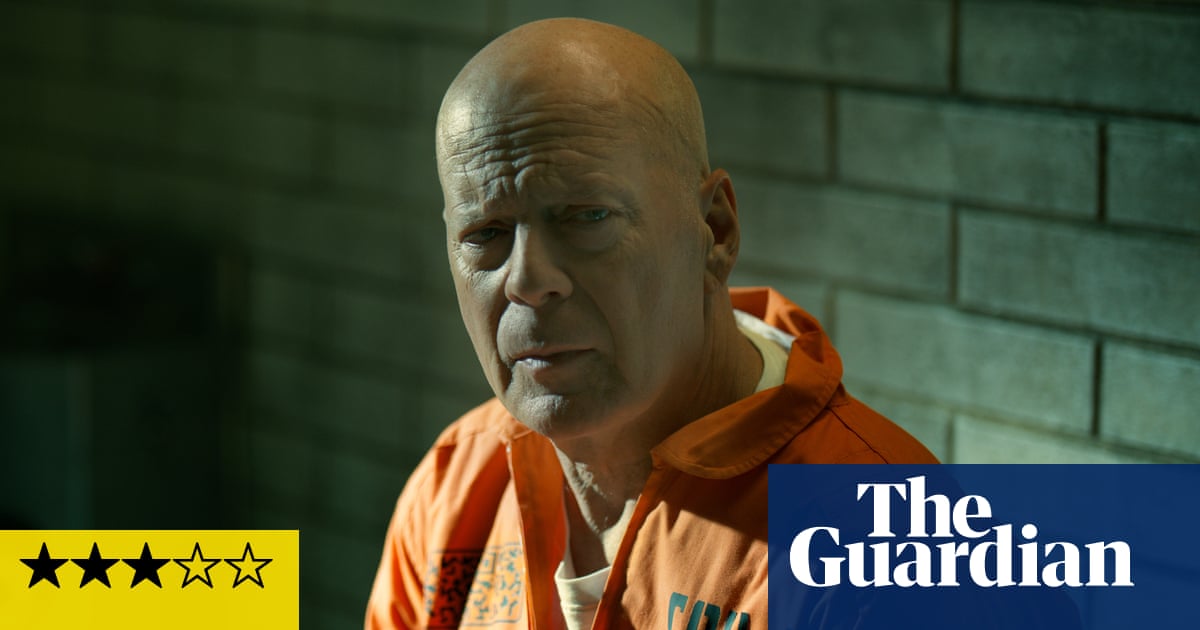
Corrective Measures review – Bruce Willis flexes his mind control in superpowered prison drama
Based on Grant Chastain’s graphic novel, Corrective Measures is an unabashed splicing of X-Men and Suicide Squad. Something so derivative really shouldn’t work, yet its setting, within the confines of San Tiburon – a maximum-security prison for inmates with superpowers – corrals the story into something close to a brassily characterised ensemble drama, while restricting the action to occasional raucous outbreaks. Presumably done for budget reasons, it winds up a more distinctive film than it otherwise might be, and is presided over by Michael Rooker – inexplicably wearing a straw boater throughout – as the arrogant and conniving Warden Devlin.
We enter San Tiburon along with Payback (Dan Payne), a Bible-bashing meathead whose mission in life is hunting down “enhanced humans”; superpowered genetic freaks who are the by-product of a global cataclysm called the Pulse. Also on the jailbird express is Diego (Brennan Meija), a doe-eyed empath who Gordon (Tom Cavanagh), a one-time electricity-throwing mutant known as the Conductor, takes under his wing. All of the prisoners have their abilities curtailed by inhibitors worn on their legs – just as well when the likes of the Lobe (Bruce Willis), an adept capable of controlling minds, are also on the block.
The story is nominally Diego’s show, as he gets sucked deeper into the Lobe’s sphere of influence in the latter’s battle with the warden, who wants to extort the Lobe’s billions. But debut director Sean Patrick O’Reilly spends a fair portion of time detailing not only Devlin but his underlings too, who are in competition to succeed him. O’Reilly makes the necessary genre genuflections, keeping regular whoop-ass appointments (mostly administered by or to Payback) and applying a southern-fried soundtrack. But the democratic structure freshens it up: giving every character credence lends a subtle weight to the film’s criticism of the US prison system; that it is a capitalist endeavour that needs a special class of criminal.
Restricted to short line readings presumably because of his well-publicised health difficulties, Bruce Willis is not exactly in fighting shape here. But Corrective Measures is still a bracing combination of super-schlock and social commentary.














